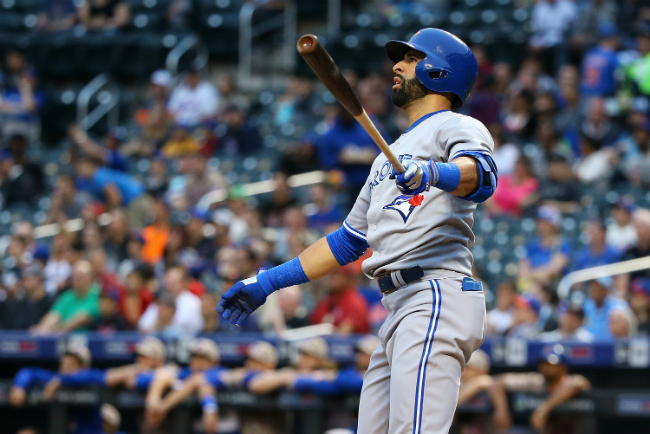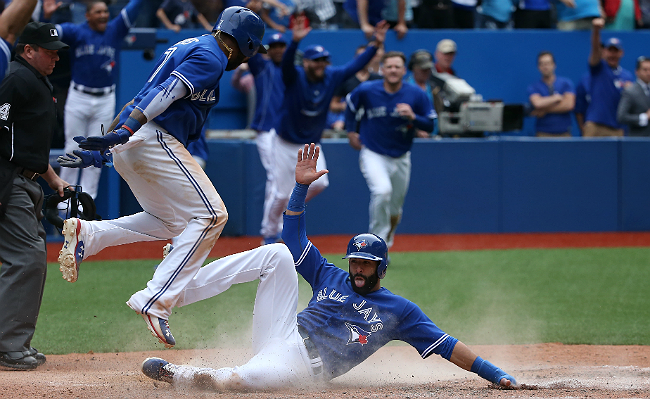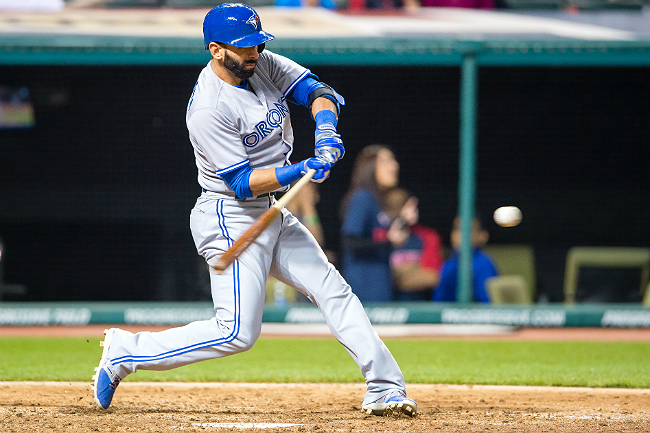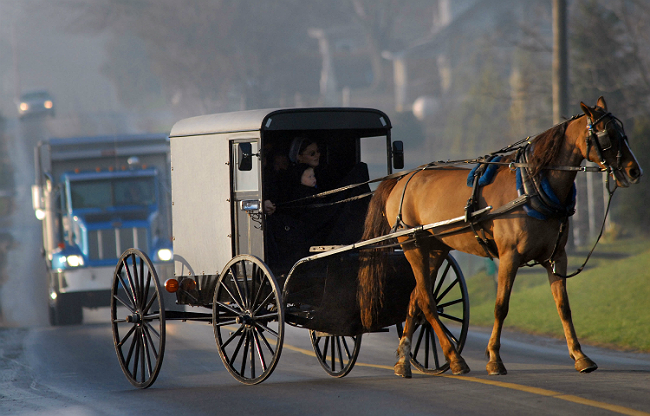
There’s no doubting the importance of the mental aspect of sports. You can have all the physical talent in the world, but if you are unable to harness that talent and couple that with an intense focus, you’ll wilt. It’s no coincidence some of the greatest athletes of all time were also the most intelligent – they saw things no one else did and did things no one else was willing to do.
Toronto’s Jose Bautista has seen a lot in his long major-league career, and it was in large part due to an increased emphasis on the mental side of the game that he was able to become one of the best hitters in the game over the past few seasons. Bautista, as well as a few other top athletes like Richard Sherman, Dale Earnhardt Jr., Rickie Fowler and Alex Morgan, have recently lent their expertise and their names to a new app called HeadTrainer designed to help young players stay sharp. In an era of sports psychology and enhanced preparation, simply playing the game and practicing a bunch isn’t quite enough.
With the Blue Jays coming off an 11-game winning streak snapped at the hands of an extra-innings loss to the Mets on Monday, Uproxx Sports had the chance to catch up with Bautista to talk Twitter, focus, the future of baseball and that time his minor league teammates took an Amish buggy for a joyride.
You see a couple of the names attached to this app, and it shined a little light on the spat – the joking – that you, Richard (Sherman) and Dale (Earnhardt Jr.) had last week. How did that come about?
Yeah, for sure. Obviously we’re trying to create some buzz and get some traction going for the app, so we’re all involved and we all want it to be successful. At the same time, we wanted to create some awareness about the mental aspects of our particular sports which is often overlooked. We’re doing it in a fun way where we’re kind of taking jabs at each other, obviously not seriously, where we have a conversation and create attention. It was fun. We knew what we were doing. Richard gave me a heads-up, and I said, ‘I can maybe say something like this,’ and he said, ‘Yeah, yeah, yeah, that sounds fun.’ It was great, and I think it got people’s attention, which was the goal.
You mentioned having fun on Twitter. You’re very active there, and you follow a lot of accounts. What’s the rationale behind following so many people, and is there an account that people would be most surprised you follow regularly?
There’s a strategy behind that. I consider myself somebody who needs a team behind me to help me interact with my fans. I want to make sure they get to know me as much as they can and I can’t do that given my schedule. Baseball is just too tough. I have a team around me that has a strategy behind following accounts. If you tweet about baseball and you tweet about me, and it’s done in a positive way, and you’ve very active, you’re helping send messages. You’re helping grow the sport. You’re doing something positive for baseball, or MLB, or the Blue Jays, or myself.
I like to follow those accounts because that’s what I like to do. I send a message out, I tweet a conversation about baseball, the Blue Jays, and myself. We can feed off of those accounts, and those accounts can feed off of me. That’s the whole point of Twitter is the interaction, and everybody’s engaged. It’s not just I follow this guy, and I read his tweets, but I never respond to them. What’s the point of doing that? That doesn’t make a lot of sense. So it’s creating traction and interaction that raises the engagement that’s behind the followback program or strategy that I’m on basically. I have a team that sits there and watches; it’s not a computer program. They read people’s tweets and see if they engage with me or talk about some of the other subjects that are important to me like fashion or education and some other things that I like to be in those conversations.
I insert myself in those conversations. Those are the guys that pay attention and speak about the same things that I do, so why not follow them?

What else do you think can be done to really push the sport forward? The discussion has been brought up about possibly a shortened schedule, or bringing the DH to the National League. Are there any things you’re passionate about that could really help continue to grow it into the future?
There’s a fine line to play around, where it is a business and you want to grow and you want to do things that will help the business in the long term. And MLB is going to great lengths at doing that. Having the RBI program where you’re allowing kids in inner cities to play the sport without having to spend any money is going to help out a lot. The draft and its coverage lately has been huge and showcasing young talent and amateurs and putting them in the limelight a little bit has helped. Some of those decisions that have to do specifically during a Major League Baseball game, like you mentioned the DH and stuff like that, I like to leave that up to the experts. Those type of decisions have to be done in a group. That’s how MLB is going about it. None of that is imminent and has to be made a decision about soon.
People have complained in recent years that the games are taking too long and commercial breaks are too long, and MLB has really cleaned that up. They’ve become really strict with commercial breaks. They brought down the average length of game by over 15 minutes. It’s just huge. Hopefully that can keep people engaged and watching the games. It’s an exciting game. Baseball can change in the snap of the fingers with a home run, and everything else with strikeouts, it’s just a fun sport that can build you up to a specific moment. That’s why I like it, and there’s a lot of strategy behind it. People who like to figure things out and understand the mechanics of managing a roster of 25 people is really mentally immense.
The mental aspect gets so overlooked. A lot of it is hand-eye coordination, and you have such a short time to make a decision. What do you want people to know about just how tough it is to play this game?
Everything in life is tough. I don’t think anything that people do is easy. I think other things you do in life have particular ways to practice or prepare other than being there and doing it and going through it. One of the things you do is prepare yourself and make sure you stay focused, you don’t get nervous, you’re mentally sharp in the moment where the game is on the line, the bases are loaded, the other team has the best pitcher and you have less than a half a second to react. What can you do to practice that? Nothing. [Laughs.] A coach can talk to you all the time, but this is where HeadTrainer comes in and it’s done in a fun environment and a way that’s challenging but entertaining at the same time. It’s a great idea, and my hat’s off to the guys at Duke who came up with it, and all the research that’s there to back it up. When it was proposed to me, I couldn’t turn away.

Is there anything that you’ve kind of picked up over the last few years that’s helped you sharpen your skills? Something you’ve added to your routine, or something you’ve studied more? There’s only so much you can do, but there are things scientifically that have come about that have helped the art of hitting.
It’s all stuff that has nothing to do with the mental part other than being prepared in different ways like watching video, looking at probabilities and pitchers’ comfort in certain situations and what pitches they like to stay with. It takes discipline and mental focus to keep those thoughts not on the back burner, but kind of queued up when that situation does arise in the game, and I have no way to practice it. I learned the hard way, but that doesn’t mean the next generation has to do the same thing. If they have resources like HeadTrainer, they can practice those skills.
If you look at it, what other options are available? Are you going to pay a lot of money to a psychologist or a psychiatrist or a mental coach to do one-on-one meetings where they have to come to you or you have to come to them? We want to get to a place where you can do it whenever you want, on your phone, with your headphones on. Whether you’re traveling on a plane or in the car or you’re at home sitting watching TV or laying in bed in the hotel on the road. That’s another huge element that would be so difficult for people to have access to this type of training for the mental part of a particular sport.
Along with the mental aspect, the physical component is so critical as well. Is there anything you’ve done differently or that you’ve incorporated into your fitness regimen that’s a bit more unorthodox from how you used to do it. What are you doing now that you wish you had done a few years ago?
In the training part, I’ve just been doing a lot of reading for the last few years. You get older. You know what works, and what doesn’t, so you filter out the things that are basically a waste of time. I call that eye wash. It’s just people doing things just to say they did it even if they don’t get a lot out of it. As part of my training, a lot of things I’ve done is just narrow down, specifically, movement and exercises that resemble baseball movements. Because that’s what I do. Why do I want to be strong, let’s say on the bench press, when I don’t ever push up my hands from my body in baseball? I’m not saying I never do it, but I don’t focus my workouts around it like I used to.
I’ve read a lot of books about functional movement and mobility and making sure your joints are moving correctly and the tissue under your skin is moving freely. It helps a lot with injury prevention, as well as power and strength. It’s all about functional exercises now, and I’m a big fan of that. I’ve jumped on that bandwagon, if you want to call it that, over the last few years because of all the reading I’ve done about it.
Back to the issue of focus, you guys just came off a long winning streak. Is there anything you do differently during a winning streak? Is it hard to stay focused during that?
It’s about not letting thoughts creep into your mind, like there’s a lot at the table, there’s more at stake, I don’t want to make a mistake and ruin it for the team. But having a good mental routine and keeping your priorities straight in what keeps you successful. That takes a lot of discipline and it’s mental discipline, which is hard for people to create. Having a routine and knowing exactly what keeps you successful and having certain cues that take you there is definitely what kept me from going out of my way and not letting those thoughts that are negative creep into my head in those specific moments.

It seems like every player has a crazy minor-league story because the minors on their own are such a weird living, breathing thing. What’s your craziest minor-league moment?
I don’t know if there’s a craziest one. But when I was playing in the minor leagues, and I was in Pennsylvania, we had left a game. We were trying to find something to eat. It was late at night, and it was one of those towns in rural Pennsylvania where everything was closed. We found a Waffle House or something and went and ate, and we were walking back to our hotel. Two of my teammates saw an Amish wagon with a horse, and it was just parked in the street. They took it for a little joyride. I was a little too scared to join that party. They didn’t get in trouble, they just took it around the block and left it right where they found it. I thought it was kind of crazy at the moment, and more funny than anything. It was different for sure. Those are the stories about baseball that never get out to the public. Minor-league players taking an Amish wagon, a horse and buggy, for a joyride. That was interesting.






